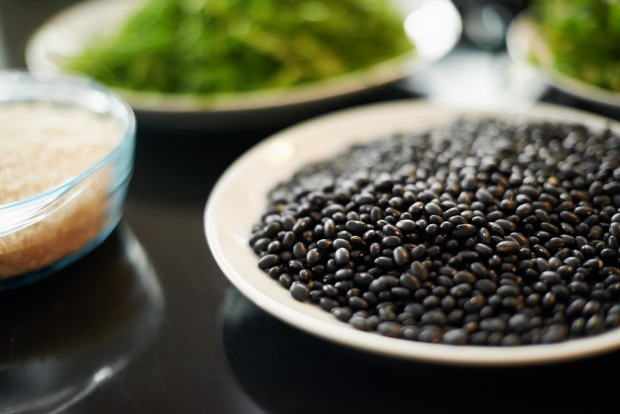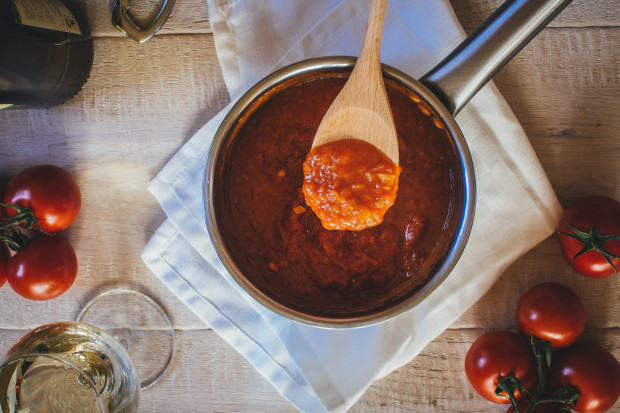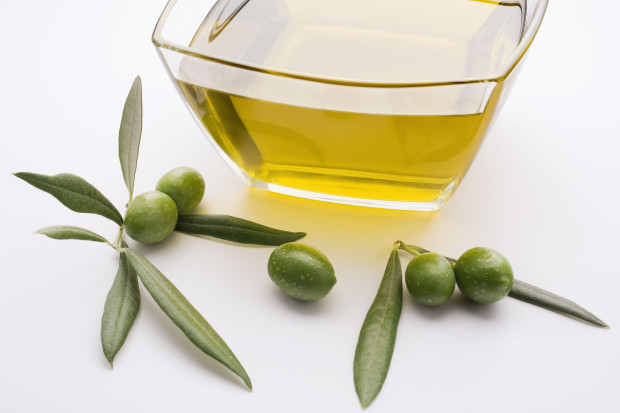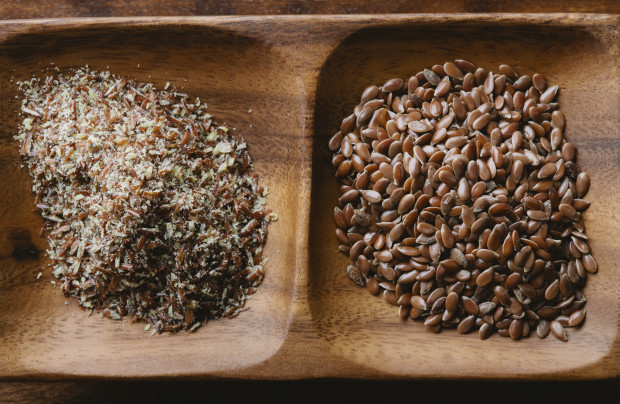[ad_1]
If you think a heart attack can’t happen to you, think again. In 2017, celebrity trainer Bob Harper surviving a heart attack—and it shook the fitness community. Afterward, the 51-year-old devoted CrossFitter prioritized activities and foods that are great for his heart.
Harper began walking more and followed the Mediterranean Diet, a plan that relies heavily on heart-healthy foods like plants, some seafood, and a bit of poultry and dairy.
Seeing a guy like Harper get hit with a heart attack can make guys with a family history of heart problems a little extra nervous. But a lean, fit physique isn’t a direct reflection of what’s going on in your arteries.
“Would you put the wrong fuel in a supercar, counting on it to run well because it looks good?” asks David Katz, MD, MPH, Founder of True Health Initiative. “The human body is a remarkable machine, but it, too, depends on the right fuel to run long and well.”
Fortunately, the same heart-healthy foods that keep arteries clear can also fuel workouts without tasting like cardboard. “Eat close to nature and predominantly plant foods and you can’t go too far wrong,” Katz says, explaining that this is the diet mantra to keep in mind if you want to prevent a heart attack.
While most edible plants in their lower-processed versions offer heart-attack protection, here are the heart-healthy foods that top the list.

One cup of black beans contains nearly five grams of soluble fiber, which binds to cholesterol in the digestive tract and removes cholesterol from the body. Black beans are also rich in anthocyanins, an antioxidant that helps protect the heart.
“Beans figure prominently in all of the Blue Zone diets,” Katz says, meaning diets in regions of the world where heart disease affects just a small fraction of people as compared to those on the standard American diet.
So in place of meat from the burrito bar, opt for heart-healthy black beans. Toss beans into salads and breakfast scrambles, or make your own quinoa patties.

Canned tomato paste, juice, and sauce deliver the most lycopene, an antioxidant that has long been studied for its heart health benefits, including reducing inflammation and possibly lowering blood pressure, improving blood flow, and affecting fats in the blood.
While raw tomatoes are also good for your heart and your body, oil and heat make it easier for your body to absorb lycopene. Other essential nutrients in tomatoes support heart health, and it may be this precise combination that delivers the goods.
So go ahead and slather whole-grain pasta with marinara sauce, request extra pizza sauce, or drink a Bloody Mary to get more lycopene in your diet.

One medium sweet potato contains 11 percent of the daily recommended amount of potassium, an electrolyte most Americans skimp on. That lack of potassium, especially paired with the overload of sodium in a lot of American diets, may eventually lead to high blood pressure.
Swap in sweet potatoes as a side dish and cut them into sweet potato fries.

This oil from the first pressing of olives contains mostly polyphenols and monounsaturated fat, which are great for your heart.
According to new research in the American Heart Association’s journal Circulation, people who stuck with Mediterranean diets with four tablespoons of extra-virgin olive oil per day for a year had much better HDL function, meaning better plaque removal and more relaxed blood vessels. This diet went against a “healthy” control group that focused on reducing red meat, processed food, high-fat dairy, and sweets.
To get better HDL function, drizzle extra-virgin olive oil over salads and hard-boiled eggs. Cook with it on low or medium heat.

Sardines are a top source of marine-based omega-3 fatty acids, a special polyunsaturated fat shown to benefit the heart. Omega-3s also lower triglycerides (the fat in your blood) and slow formation of arterial plaque.
You can eat them straight, in lemon-flavored olive oil, or with tomato sauce on seeded crackers. Or if you can’t stomach the idea of sardines, other good bets include albacore tuna, wild salmon, and trout.
The USDA Dietary Guidelines recommend eight ounces of seafood per week, the amount associated with reduced cardiac deaths.

Flaxseed delivers plant-based omega-3s and lignans, a type of fiber with antioxidant effects that prevents plaque growth and blood clotting before a heart attack. Try flaxseed with yogurt, oats, cereal, and salads. Or use it as an egg replacer in breading and energy bars.
By the way, nuts and seeds of all kinds offer up a slew of nutrients with heart benefits, like good fats, fiber, potassium, and antioxidants.

In a large study in Circulation, researchers looked at people’s food journals and found that those who ate strawberries and blueberries three days per week had a 32 percent reduced risk of heart attack, even when compared to people who ate plenty of other fruits and vegetables, independent of other risk factors.
While other berries also contain the powerful antioxidant anthocyanins, strawberries and blueberries are most commonly eaten so usually get the attention. Either way, get some more berries in your life — and reap those heart benefits.
Michelle Dudash, RDN is a registered dietitian nutritionist, Cordon Bleu-certified chef, and cookbook author.
[ad_2]
Source link

Hi! I’m a dedicated health blogger sharing valuable insights, natural remedies, and the latest scientific breakthroughs to help readers lead healthier lives. With a holistic approach to wellness, I empower individuals with accessible and actionable content, debunking myths and offering practical tips for incorporating healthy habits.